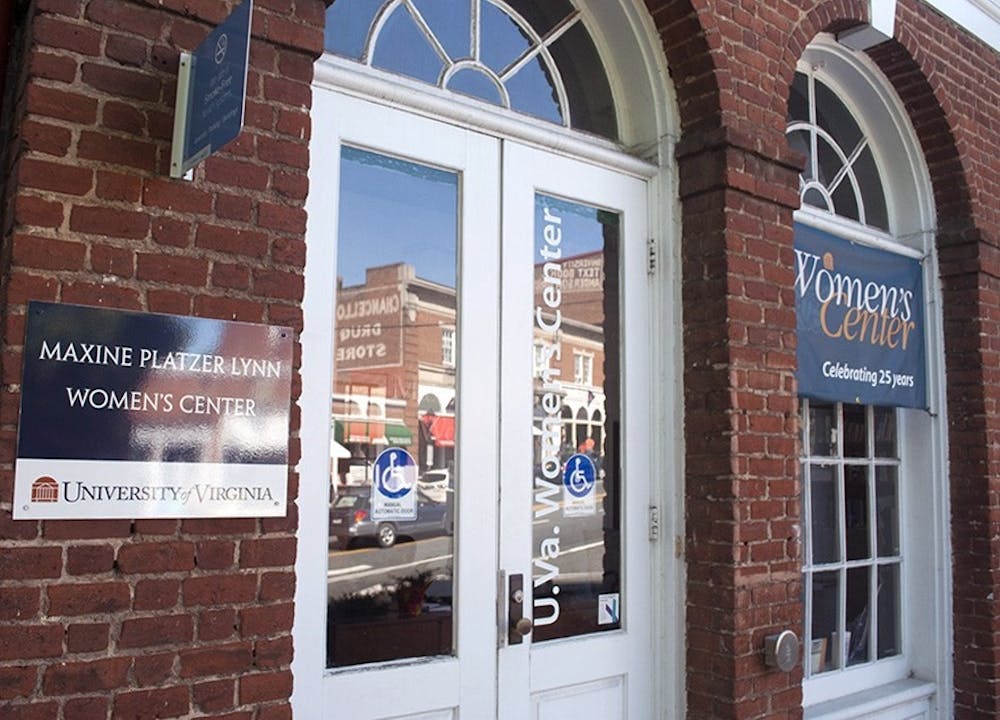The Maxine Platzer Lynn Women’s Center has closed its waitlist for professional counseling for the remainder of the 2019-2020 school year because all counseling slots and the waitlist are full. However, the center has a referral methodology in place to accommodate any prospective clients and will continue to offer a number of other wellness services until the summer.
The Women’s Center was founded in 1989 as an academic support unit providing resources, services, and leadership opportunities for University students, faculty, staff members and members of the greater Charlottesville community. Its offerings include a wide variety of support services including counseling, confidential advocates, study spaces and a free legal clinic.
In the last three-and-a-half years, the center has expanded its counseling staff from four to seven full-time counselors. This increase in staffing occurred in response to increased demand from students and was enabled through additional funding provided by the University Provost Office.
Currently, each counselor sees between 18 to 24 clients at a time. Additionally, for every hour of face-to-face counseling a counselor provides, there are 15 to 60 minutes of follow-up work that they are responsible for. Thus, by increasing the number of licensed counselors on staff, the center was able to expand its offerings.
Abby Palko, director of the Women’s Center, commented on this increase in staffing in an interview with The Cavalier Daily.
“As a society, as we get more and more comfortable with the idea of seeking help for mental health issues, concerns and traumas, we have experienced the demand for services increases, as well,” Palko said.
The demonstrated need for another increase in staff has persisted even as they have acquired more employees in recent years.
Although fully staffed, counselors at the center often work with clients for extended periods of time and commit themselves to provide services to these individuals as long as necessary. At this point, the center’s counselors have reached full capacity for the remainder of the 2019-2020 school year and the center has closed its waitlist.
This occurrence is commonplace for many institutions that offer counseling because mental health providers and their professional ethical standards prohibit maintaining a waitlist that is too long.
Wes Hester, director of Media Relations and deputy spokesperson for the University, said the waitlist was needed because there is no limit on how often a counselor can meet with a client.
“The Women’s Center maintains a waitlist, but at this point is not currently adding people because they are unable to assign them a counselor this semester, in part because they have no limit on the number of times they will see a single client,” Hester said.
Individuals seeking counseling for the remainder of this school year will be referred to professionals in the surrounding Charlottesville area. The center commits to having a face-to-face conversation with every individual that demonstrates an interest in receiving counseling in order to properly assess their needs.
“The counselors on the team here have built up really strong collaborative professional connections with therapists in Charlottesville — there’s a wide community of counselors that we can refer to,” Palko said. “We work with the students to help match the client’s concerns and their access to insurance, with the best fit out in the community for them if we are not able to take them on as a client right now.”
The center also has a full-time confidential advocate who is not a licensed counselor but is a trained certified confidential advocate that can meet with students for some consultations as well.
In addition to professional counseling services, the center provides a wide variety of other wellness aids including outreach through student groups, a blog and several other in-house services such as study rooms and quiet spaces.
In response to student demand following the closing of the Alderman Library for renovations, the center has increased its hours of operation of these study spaces on Tuesday evenings until 8:00 p.m. and Sunday from 1:00 p.m. to 5:00 p.m. According to Palko, this change was able to happen through the Parent’s Fund, which provided seed money to offer these extended study hours. This grant is paying the undergraduate student workers who help staff the open hours.
“They enthusiastically supported our request … and we are continuing that this semester to see if this is a need that we are able to provide a resource to meet,” Palko said. “We are keeping data on how many people are coming and using the spaces, and then at the end of the semester, we’ll make a decision as to whether or not we think this is something useful to continue to provide.”
The full list of the hours of operation can be found on the center’s website.
Correction: This article previously referred to the Women's Centers counselors "physicians." The article has been updated to reflect the correct title.







